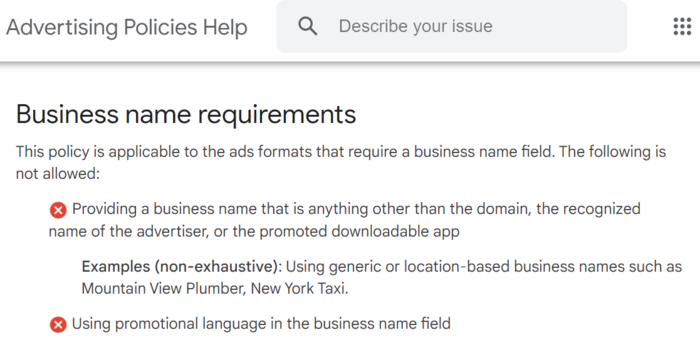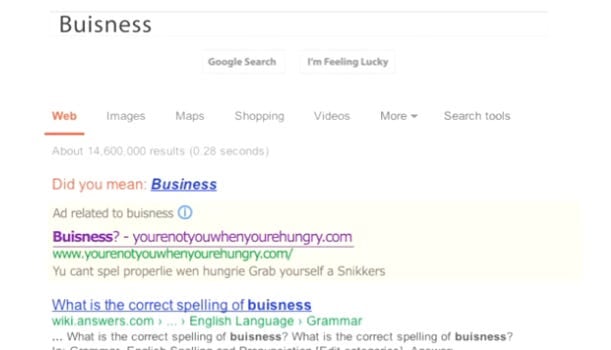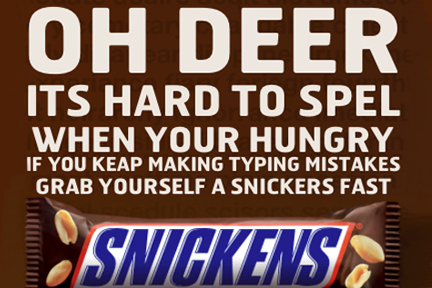Comments URL: https://news.ycombinator.com/item?id=39937666
Points: 0
# Comments: 0
Article URL: https://www.ycombinator.com/companies/laylo/jobs/x3d7mtv-live-events-music-account-executive
Comments URL: https://news.ycombinator.com/item?id=38859850
Points: 0
# Comments: 0
Senate Majority Leader Chuck Schumer praised President Joe Biden for coming to a debt ceiling agreement with House Speaker Kevin McCarthy and told senators to prepare for a vote later this week.
Schumer made the statement in a “dear colleagues” letter to his fellow Democrats on Sunday. The caucus will meet over the phone to discuss the specifics of the budget deal later Sunday and early this week, he said in the letter.
“I salute President Biden for protecting the American economy and delivering for American families by taking the threat of default off the table,” Schumer wrote. “I look forward to seeing the language of the agreement and reviewing it carefully.”
“These have been a difficult few weeks given how intransigent and extreme the MAGA Republicans are, but nonetheless we must avoid default and its grave consequences for the American people,” he added.
DEBT CEILING AGREEMENT IN PRINCIPLE REACHED BETWEEN DEMOCRATS, REPUBLICANS
McCarthy also noted a warning from Treasury Secretary Janet Yellen that the U.S. would not be able to pay its debts beyond June 5 if Congress does not act.
McCarthy has vowed that lawmakers in the House will get 72 hours to review the text of the agreement before voting on it, pushing back the Senate process to later this week.
SPEAKER MCCARTHY DEFENDS BUDGET COMPROMISE AS CONSERVATIVES BALK: ‘A STEP IN THE RIGHT DIRECTION’
Biden’s White House team negotiated with Republican leadership throughout the weekend before announcing an “agreement in principle” on Sunday. The speaker defended that agreement in an appearance on “Fox News Sunday.”
MCCARTHY CITES ‘PROGRESS’ IN US DEBT-CEILING TALKS WITH WHITE HOUSE
“Maybe it doesn’t do everything for everyone, but this is a step in the right direction that no one thought that we would be able to today,” McCarthy told host Shannon Bream.
“I’ll debate this bill with anybody,” he continued. “Is it everything I wanted? No, because we don’t control all of it. But it is the biggest rescission in history. It is the biggest cut Congress has ever voted for in that process.”
CLICK HERE TO GET THE FOX NEWS APP
Several Republicans remain opposed to the legislation, most of them within the House Freedom Caucus. Rep. Chip Roy, R-Texas, blasted the bill for not cutting the vast majority of Biden’s push to expand the IRS, among other things.
Dartmouth head football coach Buddy Teevens was hospitalized on Thursday after a cycling accident in St. Augustine, Florida.
Teevens, 66, is an avid cyclist who was riding his bicycle when he was involved in a collision.
He’s been in the hospital since the accident and his family is with him, according to the school. They are not accepting visitors right now “in accordance with their wishes.”
CLICK HERE FOR MORE SPORTS COVERAGE ON FOXNEWS.COM
Teevens is the Big Green’s all-time winningest head coach. He owns a 117-101-2 record and is 83-70-1 in Ivy League play over his career.
ALABAMA DEFENSIVE BACK ARRESTED ON MARIJUANA POSSESSION, INTENT TO SELL/DELIVER CHARGES
Dartmouth is also his alma mater, having played three seasons for the Big Green as the team’s quarterback. He played 27 games for them from 1976 to 1978, throwing for a total 1,808 yards and six touchdowns.
Teevens has bounced around college football before landing with Dartmouth again. He’s been coaching for 32 years between the University of Maine, Tulane, Stanford and two separate stints with the Big Green.
Teevens’ first stint with Dartmouth came from 1987 to 1991; his team was the co-Ivy League title winner in 1990 and won it the following year outright.
JALEN CARTER, TOP NFL DRAFT PROSPECT, PLEADS NO CONTEST TO RECKLESS DRIVING, RACING CHARGES
He would return to Hanover in 2005 and has been there since. Teevens has led the Big Green to three co-wins of the Ivy League title in 2015, 2019 and 2021.
Teevens was named New England Coach of the Year in 1990, 2015 and 2019; he was also named Ivy League Coach of the Year in 2019 and 2021.
Can the Huskies, who have dealt with injury and illness all season, overcome Aliyah Boston and the No. 1 Gamecocks, who have the best depth in the country?
The post South Carolina-UConn predictions: Who wins the NCAA title game rematch? appeared first on Buy It At A Bargain – Deals And Reviews.
Backblaze | Engineering, TechOps, Business Intelligence, Marketing, and Product Management | Full-time | Hybrid | San Mateo Backblaze is a public company that makes storing and using data astonishingly easy. When our founding team got together, they committed to helping people save their data. Today, the Backblaze Storage Cloud provides a foundational platform around the … Continue reading New comment by atramyar in "Ask HN: Who is hiring? (September 2022)"
The only thing certain in the NFL heading into Week 13 of the 2021 season is that nothing is certain.
We all make mistakes. It’s part of being human.
Unfortunately, in some cases, mistakes can be costly.
If you’re a marketer running paid campaigns, mistakes can actually be blessings in disguise. That’s because you can build paid ad campaigns around typos, misspellings, and other types of mistakes if you play your cards right.
Mistakes in ads have a high chance of going viral. People love making fun of other people’s mistakes. In today’s world, that means sharing your mistake with their network. An ad with a typo, misused apostrophe, incorrect homophone, or any other error could make more people aware of your brand than ever before.
Whether or not that’s a good thing largely depends on how you handle the issue. Rather than trying to cover up your mistake, take advantage of it.
While mistakes may be embarrassing and used well, they can also be a tool to shine the spotlight on your brand or product.
Sometimes using conventional digital marketing practices only puts you in the same league as your competitors. In today’s crowded market, you may need to give yourself an edge.
Sometimes that involves leveraging mistakes in your paid ad campaigns, particularly your ad copy. Here are six ways you can use written mistakes to your advantage when engaging in paid advertising.
If your brand made a mistake in a previous campaign, go all in and make a joke of the mistake in your next paid ad campaign.
For best results, share the ad on the social media platforms where the mistake got the most coverage. Make sure to tag those who initiated the conversation around the mistake and any influencers who joined the chat.
There are two big reasons you should lean into your previous mistake.
Admitting to your mistakes can be a great way of showing the human side of your brand. One particularly human trait that will stand out is humility, a quality that will help you earn your customers’ trust.
The conversation around your first paid ad mistake is a spark you can fan into a blazing brand awareness inferno. Unless your error made your ad offensive, instead of apologizing, poke fun at yourself. Think of how many of the most beloved comedians are self-deprecating!
The next time one of your paid ads goes out with a mistake, take it as an opportunity to run a fun campaign.
Some brand names were designed to be spelled wrong. Take, for example:
These were purposely misspelled for brand “stickability” so people remember them.
What happens if people often misspell your brand name?
Use that to your advantage by incorporating those wrong spellings in your paid ad campaigns.
A little humor here will go a long way. Humorously call out the misspelling of your brand name. When people search for your brand using the wrongly spelled version of your brand name, your ad may pop up.
It’s a win-win situation. Your customers still get to find you, and you’ll still get the traffic you would have otherwise missed due to the typo.
Let’s face it. No matter how much you may try and educate people about the correct spelling of your brand name, you’ll always find those who still misspell it.
That said, when creating your ad, make sure not to use the wrong spelling of your brand name in the business name field. This could get you in trouble as it goes against Google’s editorial guidelines.

Creativity is an essential element of creating paid ads that work. One creative hack you can use to boost your campaigns is using homonyms in your ads. These are words that are spelled and sound the same but have more than one meaning. Examples of homonyms include:
Words with more than one meaning can make your ad memorable when used well.
That said, be sure your target audience will appreciate the joke. Consider their preferences before going with something a little “scandalous,” for instance.
Sensational spelling is an excellent marketing gimmick you can leverage to differentiate your brand, products, and even ads. If you’re wondering, sensational spelling refers to the deliberate deviation from the standard spelling of a word while still maintaining its pronunciation. Common examples of sensational spellings include:
The purpose of sensational spelling is more for special effect than anything else, and that effect works on two primary levels:
The visual effect of sensational spelling is a powerful tool for stopping searchers in their tracks. Moreover, because the spelling looks out of the ordinary, it evokes a sense of curiosity.
Because they look cool, words that leverage the device elicit positive emotions from your target audience when they see your ads. This helps create an emotional attachment that works in your favor by giving your conversion rate a push.
Keyword research plays a huge role in any digital marketing campaign. While it’s common to use exact match keywords and synonyms, marketers rarely consider using typos and misspelled keywords.
When conducting keyword research, take note of wrongly spelled keywords that have a decent volume. Chances are that few brands are incorporating them into their campaigns. Therefore, bidding on them won’t be as expensive as bidding on the correctly spelled version.
Including these types of keywords in your targeted keyword list will extend the reach of your ads while still keeping your ad spend relatively low.
Bidding on typos and misspelled words is an excellent way of tapping into premium traffic. However, you must be careful to execute your campaign strategically. Otherwise, it might backfire. For example, avoid using dynamic keyword insertion when running a paid ad campaign with typos or misspelled words. Using dynamic keyword insertion will result in the correctly spelled version of your keyword being placed in your ad.
All that said, intentionally misspelling words often can lower trust in your attention to detail, and you don’t want to resort to unsavory techniques to include these misspelled keywords without them being visible to users.
Are there words that are commonly misspelled that you might use in your content? Then find ways to work them in naturally! For instance, if your company’s mascot says “Voila!” a lot, you could write something like “Voila, pronounced ‘walla’…”
Take advantage of them and build some paid ad campaigns around them.
People love quotes. They spice up conversations, are a great source of inspiration, and can help build effective paid ad campaigns.
Yes, you read that right.
Misquoting a well-known quote in your niche disrupts your readers’ thought processes and gets them to focus on the message you’re trying to convey. It may also make them chuckle.
For your next campaign, consider taking quotes from a popular movie or public figure and incorporate and put your own twist on it.
Remember—make sure your audience knows you’re in on the joke. Otherwise, they could end up thinking you just didn’t pay attention.
Need a couple of examples of paid ad campaigns built around typos?
I’ll do you one better and show you two.
A classic example of a paid ad campaign that intentionally used a typo is the Snickers’ “you’re not you when you’re hungry” campaign.

The campaign involved the brand bidding for about 25,000 of the most popular grammatical errors and misspelled search terms. Each time a person typed one of those in the search bar, the first ad would direct them to Snickers’ website.
One factor that made this campaign a success is the humorous nature of the campaign. Snickers even went as far as misspelling their name (and many other words too). For example, take a look at the ad below:

An interesting element about this campaign is that Snickers didn’t build their campaign solely on brand or product-related misspellings. To widen the reach of their campaign, they targeted words that are commonly misspelled by people searching on Google.
Now that’s what I call thinking out of the box.
Ten percent of search queries contain a spelling mistake. Knowing the common spelling mistakes for your product can give you the advantage of utilizing them in your paid ad campaigns.
Here’s an example from Poofing Pillows:

As you can see, Poofing Pillows clearly knows how to spell “mattresses.” However, they’ve used the common misspelling and the correct spelling in their paid ad to hit both keywords.
Make sure to create a different ad group for these types of ads for better tracking and management.
Before we wrap up this interesting discussion on building paid ad campaigns around typos, misspellings, and mistakes, let’s quickly answer a few FAQs about paid ad campaigns.
Brands bid for keywords on search engines, social media, and other advertising platforms. The ad that wins the bid gets displayed.
Despite the stiff competition for keywords, paid ads are still a great way to generate leads and drive sales.
Be different. One way you can do that is to deliberately use typos and misspelling mistakes. People might stop to take a closer look.
If done well, paid ads with typos can work. They help you tap into a segment of traffic that few are looking to tap into. You can also get to spark interesting conversations around the typo, leading to a boost in brand awareness.
{
“@context”: “https://schema.org”,
“@type”: “FAQPage”,
“mainEntity”: [
{
“@type”: “Question”,
“name”: “How do paid campaigns work? “,
“acceptedAnswer”: {
“@type”: “Answer”,
“text”: ”
Brands bid for keywords on search engines, social media, and other advertising platforms. The ad that wins the bid gets displayed.
”
}
}
, {
“@type”: “Question”,
“name”: “Are paid ads still worth it?”,
“acceptedAnswer”: {
“@type”: “Answer”,
“text”: ”
Despite the stiff competition for keywords, paid ads are still a great way to generate leads and drive sales.
”
}
}
, {
“@type”: “Question”,
“name”: “How can I make my paid ads stand out? “,
“acceptedAnswer”: {
“@type”: “Answer”,
“text”: ”
Be different. One way you can do that is to deliberately use typos and misspelling mistakes. People might stop to take a closer look.
”
}
}
, {
“@type”: “Question”,
“name”: “Do paid ads with typos work?”,
“acceptedAnswer”: {
“@type”: “Answer”,
“text”: ”
If done well, paid ads with typos can work. They help you tap into a segment of traffic that few are looking to tap into. You can also get to spark interesting conversations around the typo, leading to a boost in brand awareness.
”
}
}
]
}
Paid ad campaigns. Typos. Misspellings. Grammar errors. Can anything good come out of these combinations?
The simple answer is…possibly.
It all depends on how you build your campaigns. Using the tips and strategies outlined above, you can create paid campaigns around typos, misspellings, and other types of mistakes.
These campaigns could help you drive brand awareness, boost sales, and achieve many other business and marketing goals.
Have you ever made a typo or other glaring mistake in your paid ads (intentionally or not)? How did that work out?
Willard Scott, the longtime weatherman on NBC’s “Today” show, has died.
Article URL: https://www.ycombinator.com/jobs
Comments URL: https://news.ycombinator.com/item?id=27830451
Points: 1
# Comments: 0